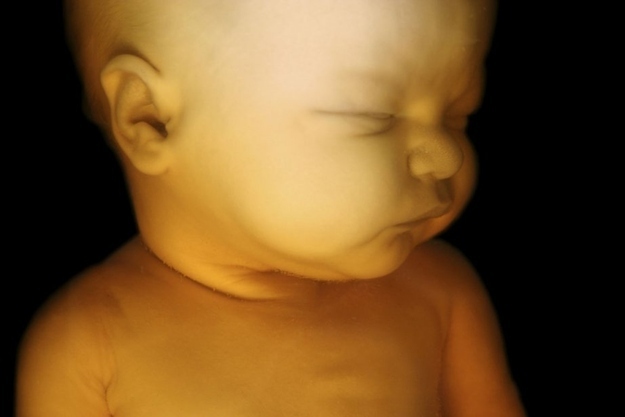Louisiana Legislature Passes Bill Banning Abortions When Unborn Baby’s Heartbeat Begins, by Steven Ertelt

Margaret Sanger — Eugenics Supremist
May 30, 2019
Daily Reading & Meditation: Friday (May 31)
May 31, 2019
27 week unbornbaby
By Steven Ertelt, LifeNews, May 29, 2019
BATON ROUGE, LOUISIANA – The Louisiana legislature today gave its final approval to the heartbeat bill to make it the next state to ban abortions this year – following states like Ohio, Georgia, Mississippi, Alabama and Missouri. Louisiana Governor John Bel Edwards says he will sign a bill that bans abortions when a baby’s heartbeat begins.
The Louisiana House voted 79-23 to pass the pro-life bill — sending it to the governor for his signature. The House rejected an amendment that would have provided an exception to allow killing unborn babies in cases of rape or incest.
The Heartbeat Bill, when it goes into effect, will prohibit abortion when a human heartbeat can be detected. An abdominal ultrasound can detect a heartbeat between eight and twelve weeks.
The measure is Senate Bill 184 by Sen. John Milkovich, D-Shreveport, and Louisiana’s proposed bill is modeled after a similar Mississippi law that is being debated in a federal appeals court. It would only go into effect if the Mississippi bill is upheld.
“States across the nation are saying, ‘We are no longer going to devalue life,” Milkovich said. “We are going to acknowledge the sanctity of human life.’”
Benjamin Clapper, Executive Director of Louisiana Right to Life, told LifeNews.com after the vote:
“We commend the House for voting to protect the lives of an unborn baby whose heartbeat can be detected. We congratulate Rep. Valarie Hodges for successfully shepherding the law on the House floor. Louisiana Right to Life supports protecting all unborn babies, including those with a heartbeat that begins only 18 days after conception. This is even before most women know they are pregnant. Abortion stops the beating heart of a precious unborn child, and our nation must bring an end to this injustice. We look forward to Governor John Bel Edwards signing this bill into law.”
Edwards is a Democrat but he is one of the few pro-life Democrats in a prominent elected position nationwide.
Follow LifeNews.com on Instagram for pro-life pictures and videos.
Here’s more:
“My inclination is to sign it,” said Gov. John Bel Edwards, according to the Monroe News Star.
“It’s consistent with my unblemished pro-life record in my years as a legislator and governor,” he said earlier this month.
Last year, Edwards signed a bill to ban most abortions after 15 weeks of pregnancy. The governor has cited his Catholic faith as influencing his pro-life beliefs.
“I know that for many in the national party, on the national scene, that’s not a good fit. But I will tell you, here in Louisiana, I speak and meet with Democrats who are pro-life every single day,” he said, according to the Associated Press.





